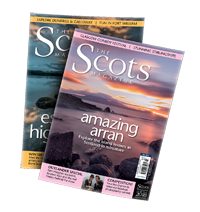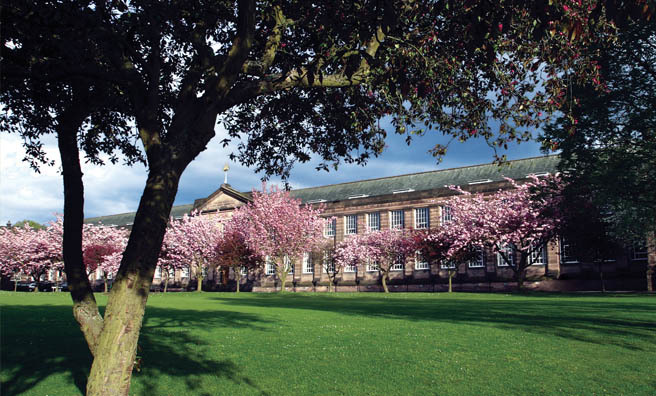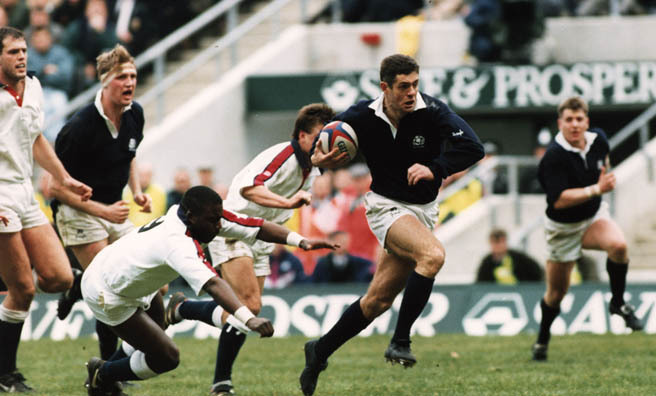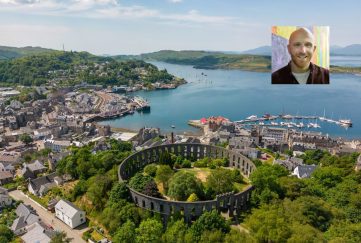Gavin Hastings | Home-Loving Boy
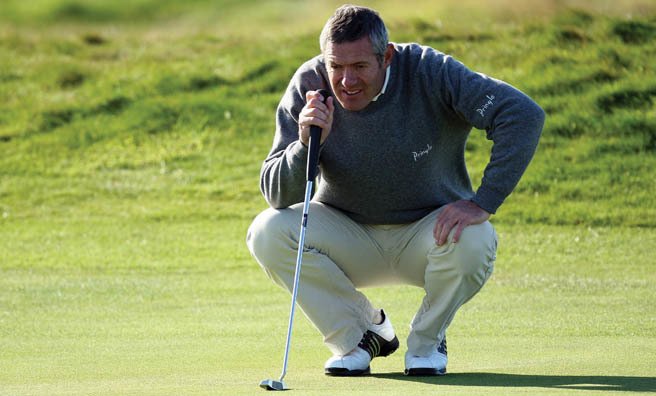
His rugby career reads like a schoolboy’s dream; captain of Scotland and the British Lions with victories recorded across the globe.
But despite his worldwide fame, Scotland – and particularly the capital – will always be home for Gavin Hastings.
Scotland is a country that I am extremely proud to live in
Relaxing in a café in the West End of his beloved Edinburgh, he says, “It is a country that I am extremely proud to live in. I have always considered myself to be an ambassador for my country; it is home. I feel very comfortable here in Scotland.”
Born and brought up in Edinburgh, Hastings went to school at George Watson’s College from the age of five through to 18 before moving to Paisley for college and then to Cambridge, where he captained the university side to victory in a Varsity match.
A year in Glasgow was followed by more time in London – experiences away from Scotland’s capital that he believes he will draw on for the rest of his life.
He says, “From my early twenties to my late twenties I was away from Scotland for the majority of the time. They are very informative years and I guess I did a lot of living and I was lucky enough to travel around the world, playing sport.
Travelling the world made me appreciate what Scotland meant to me
“It made me appreciate not only what Scotland meant to me but also gave me a view of what is out there in the world, meeting people from different cultures and backgrounds. I think that was very informative,” he admits.
“By the time I decided to come back to Edinburgh I was in my late 20s and I was ready to settle down.”
Settle down he did; he and his wife, Diane, have been together since 1990, marrying in 1993 before going on to have two children.
To some it may seem a difficult proposition to leave behind a career at the pinnacle of a sport, but it was his family, as well as work, which kept Hastings grounded.
A player at the end of the amateur era of rugby union, Hastings had been holding down a job as a surveyor while representing Scotland.
“Every single week you would go to work, and then you would train when you came home. We had a life away from rugby… so when I came to the end of my career I set myself up in business (a sports marketing consultancy) in 1995 and we started a family at that time as well. It gives you the next stage of your life.”
Charity work is also important to Hastings. As well as the Wooden Spoon rugby charity which helps disadvantaged youngsters, he campaigns for the Sandpiper Trust which provides emergency care equipment in remote and rural parts of Scotland.
I think it’s important to give some of your time to good causes
Closer to home, he campaigns to fund research aimed at finding a cure for Parkinson’s disease, a condition his wife was diagnosed with in 2003 at just 39.
He says, “I do it because I think it is important to give some of your time for free and to support very good causes. I am a great believer that people are involved in charity because of personal connections. In many respects I became more involved in terms of my association and my profile with something like Parkinson’s because of Diane’s situation.”
When it comes to relaxing, Hastings has a passion for golf and played a part in successfully lobbying for Scotland to host the Ryder Cup in 2014. Since retiring from the game with the odd-shaped ball, he almost seems to prefer the game with the small round ball.
“What is one of the best things about Scotland? The golf courses,” he says.
The member at Gullane adds that if he had nothing else to do he would like “to play golf on one of our wonderful, incredible golf courses. That is how I relax, just playing with some mates – that is just tremendous.”
When asked to choose between watching the last day of the Ryder Cup or the last Lions Test he adds, “I have been to every Ryder Cup since ‘97 bar one. I love it because I go with my chums, there is no corporate hospitality, I go there as a real fan. At all the rugby events I am actually working. So, I would say the final day of the Ryder Cup.”
Scotland’s rich landscape, for Hastings, is encapsulated by a journey north from Edinburgh, a great place to escape to.
“I always love driving up the A9. When you get just north of Perth there is a long sweeping stretch that comes down to Dunkeld and Birnam and for me, when you see all the forest there, you feel like you are getting into the heart of Scotland.
“Of course the Western Isles are fantastic as well. We once had a holiday when our son was very young, on Harris. We were on the beach on five out of the seven days – it was just beautiful.”
Scots need to be more upbeat about their country, says Hastings. “When you travel and meet people you realise that they love Scottish people and everything about Scotland. Scots have been successful all over the world and I always say it is because they are industrious, hardworking, innovative, passionate.
“In America you grab on to coat tails to get a haul up, in Scotland they grab on you to haul you down… if there was one thing I would like to change it would be getting people to be more passionate about what we have. What we have is a brilliant country, with brilliant people.”
Scottish rugby is on the edge of a cliff in terms of where it goes
Rugby has seen big change since Hastings strode the pitch, the biggest being the advent of professionalism. He says he played rugby “for fun”, adding, “We all had jobs, we were amateurs, it was something we did with our mates at the weekend. It was much about the social aspect as anything else.”
Now, the former fullback says, there is no comparison with the rugby he played as an amateur.
“The game has now just become brutal. Blokes that play now are massive – very fit and strong and athletic. It is a bad thing for their bodies.”
Hastings says that players who are now 30 are the first to have played their entire career as professionals and he fears for their health when they reach his age.
“They might be walking cripples and that’s why I really worry. We do not know what they are like when they reach my age.”
Hastings fears for the future of Scottish rugby and even says the national team may fail to qualify for the World Cup in the future.
“We are on the edge of a cliff in terms of where Scotland goes. Once seven-a-side rugby becomes an Olympic sport (in 2016) there will be millions of pounds thrown at developing rugby players by governments who want to do as well as they possibly can at an Olympic sport.
“You only have to look at the way some teams, like Kenya, Portugal and Spain, have progressed. Once countries start chucking money at sport there is a massive danger, I think, that rugby will go the same way as football and in the future we will not qualify for World Cups.”
If that sounds like a doom-laden prediction, Hastings says that in the post-Kenny Dalglish era it would have sounded implausible that Scotland’s football team would not qualify for World Cups, but that is what happened.
He adds, “It is not important enough to people here; that is not a criticism, it is a statement of fact and that worries me.”
Hastings can recall his first time at Scotland’s rugby headquarters as if it was yesterday.
He says, “I remember my father first took me to Murrayfield, Scotland v Wales in 1971, and Wales kicked a wonderful last-minute conversion. A guy called John Taylor who was a British Lion curled it in with his left foot from the right hand side. I can still picture it to this day; that was me at nine years of age thinking ‘wow, this is fantastic’.
“I went to many, many matches with my mates after that and I guess the older you get, you think ‘I’m going to be there at one stage.’”
And, of course, he was.
- George Watson’s College, where Gavin spent 13 years
- Gavin in action on the playing field (Image: Ted Blackbrow)
- Gavin was part of the group responsible for bringing the Ryder Cup to Gleneagles (Pic: Istockphoto)
- Gavin has fears for the future of Scottish rugby (Pic: Alamy)
- Gavin Hastings
Hastings’ Facts
- Born on January 3, 1962, in Edinburgh.
- His first name is actually Andrew – Gavin is his middle name.
- Hastings’ contribution to British rugby was acknowledged with an OBE in the 1994 New Years Honours List.
- His younger brother Scott was also a professional Rugby Union player.

